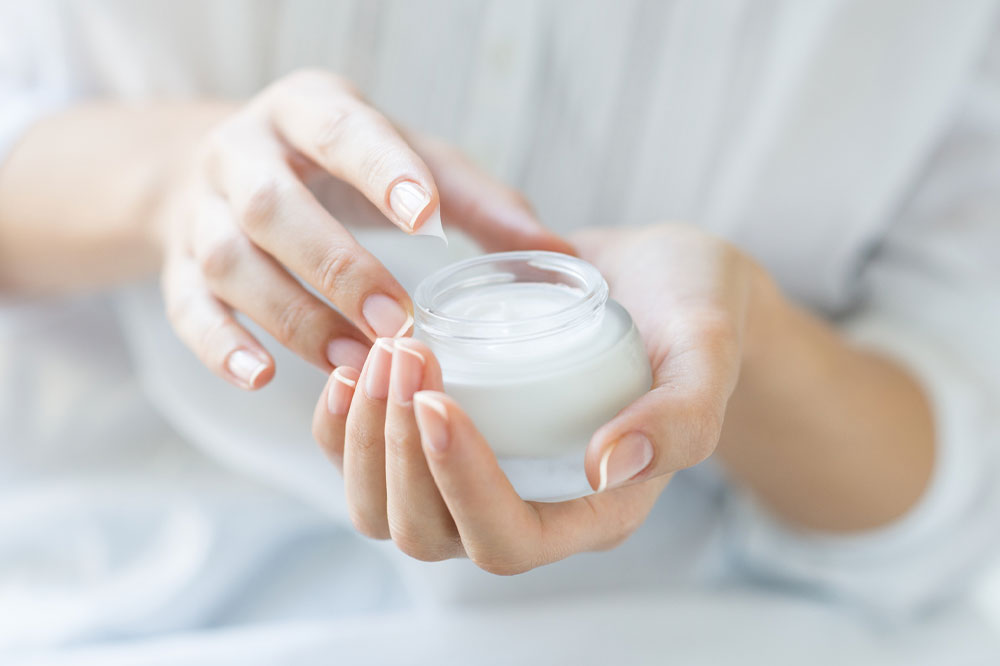Taking care of one’s overall health can ensure a wholesome life. However, various factors, such as age and genetics, can possibly trigger health complications, affecting one’s quality of life. Psoriasis is one such skin condition that causes a rash with scaly, itchy patches commonly noticed on the elbows, knees, trunk, and scalp. While there are treatments to manage psoriasis, one can also try these daily habits to reduce flare-ups.
Shower daily
One of the leading causes of psoriasis flare-ups is the lack of proper daily hygiene. Therefore, one needs to follow habits such as taking daily baths to keep the symptoms of the skin condition at bay. In the shower, they must gently wash rather than scrub their skin. One must also use lukewarm water and mild soaps with added oils or fats to ensure skin nourishment. Other ways to manage psoriasis during a bath include soaking the skin in bathwater enriched with Epsom salts or oatmeal.
Moisturize the skin
Psoriasis can flare up when the skin is dry. So an individual with the condition should apply moisturizer regularly to keep their skin moist. They must do this, especially after bathing, by gently pat drying the skin and applying the product while the skin is still moist. Extremely dry skin may require oils or heavy ointment-based products to maintain moisture levels. These options stay on the skin for longer than regular creams or lotions. Furthermore, if moisturizing helps improve the skin, the individual should use the product more than once daily. If the air where the individual resides is dry, they must use a humidifier to increase the moisture in the atmosphere at home.
Cover the affected regions at night
Another healthy habit to follow at home that may help manage and improve psoriasis is covering the affected regions before bed. One can wrap the affected area with a plastic sheet after applying the moisturizer to the skin. The wrap can be removed in the morning. One can also wash away any scales and repeat the process every night.
Expose the skin to sunlight
Exposure to small amounts of sunlight regularly can also complement skin health. The process, known as heliotherapy, can help fight psoriasis and reduce its symptoms. One should log their time in the sun and protect the unaffected skin with a hat, sunscreen (SPF of at least 30), or clothing. Excessive amounts of sunlight may trigger or worsen outbreaks and put one at risk of skin cancer. Therefore, the individual should consult with an expert about the ideal amount of time to spend outdoors.
Refrain from scratching
Psoriasis can lead to multiple symptoms that may compel one to scratch the affected skin. However, the act may lead to flare-ups and worsen the existing condition. Therefore, one needs to avoid scratching the skin affected by psoriasis. One can always speak to an expert about applying ointments or anti-itch creams that can ease the urge to itch. If psoriasis has affected the scalp, the individual can look for shampoos with coal tar that provide a soothing effect. Furthermore, keeping the nails trimmed can also help, as it won’t hurt if the individual subconsciously scratches their skin.
Keep the body cool
Hotter temperatures are one the most common factors that contribute to psoriasis. So one should look for ways to keep their body cool in such climatic conditions. They should wear light clothing before going outside on a hot day to avoid feeling too hot. Using air conditioning can also help beat the heat on hotter days. Moreover, one can also press ice packs against the affected regions of the skin to bring down psoriasis flare-ups. Cooling the moisturizer in the refrigerator before the application can offer a cooling effect that helps with skin management.
Try stress reduction techniques
While the research isn’t conclusive, experts have seen potential links between stress and psoriasis flare-ups. The immune system of people with skin conditions releases excessive chemicals, usually released during an infection or injury, which can increase stress. Therefore, one should speak to an expert about managing the mental health phenomenon. A few stress-relieving methods include simple exercises, yoga, and spending time doing things the individual enjoys.
Follow a healthy lifestyle
One of the best habits to reduce the effect of psoriasis is to follow a healthy lifestyle. A few changes one should make to their lifestyle include eating foods that can improve their overall health and getting sufficient exercise regularly. However, one must speak to an expert before changing meal regimes or workout routines. It can prevent any underlying complications from trying these lifestyle changes. Part of following a healthy lifestyle also includes avoiding meal choices that can worsen psoriasis, such as foods rich in sugars, gluten, saturated and trans fats, and even certain dairy products.
Make regular healthcare appointments
Another healthy habit to prevent skin conditions like psoriasis is to make regular healthcare appointments. Even if an individual has no underlying symptoms, a professional can help identify potential health complications early and offer respective treatments. One should ask the expert about any doubts regarding their condition and set future appointments. Moreover, they must visit the professional immediately if they notice sudden changes in their skin condition.
Prevent skin injuries
People with psoriasis are more prone to lesions and flare up if they suffer from injuries. This effect is known as the Koebner phenomenon. And while it isn’t possible to altogether avoid skin injuries, one should take all measures to limit their occurrence. A few ways to steer clear of harm include:
- Avoiding tattoos or piercings
- Taking additional care while cutting nails or shaving
- Staying cautious during food preparations
Other things to remember to avoid injuries are to protect the skin against insect bites, wear gloves while gardening, and avoid indulging in high-intensity sports like soccer, hockey, and football.



